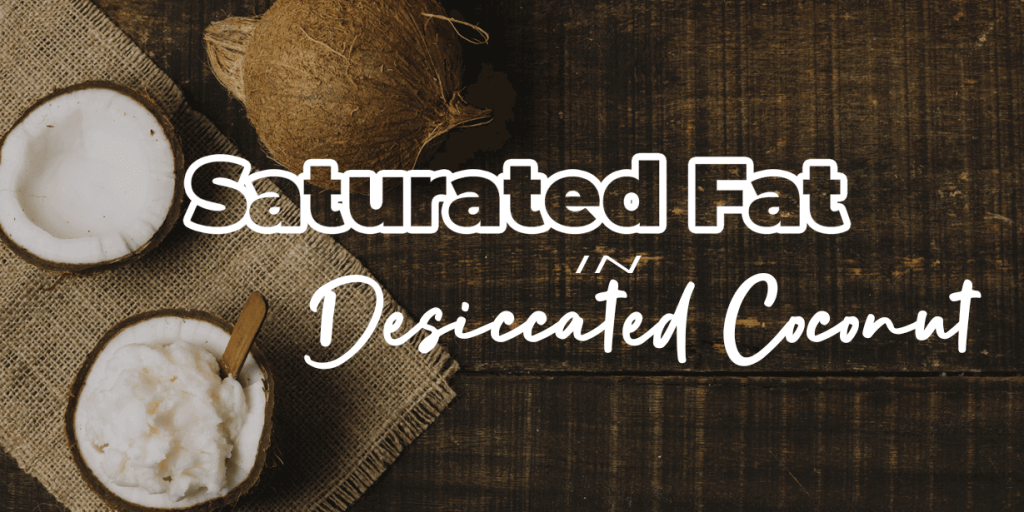Is Saturated Fat in Desiccated Coconut Still Healthy?
Compared to other products produced from the coconut fruit, desiccated coconut or the dried coconut meat from mature coconuts probably contains the most nutrients. It comes solely from mature coconuts. The moisture contained is removed by drying the meat into hot air for about 50 to 60 degrees. The final product which we call desiccated coconut usually comes in shredded form, flaked or processed into granules or chips. Though dried and stored in containers and commercial packaging, desiccated coconut still retains its moisture content and nutrients.
Based on studies, for every 100 grams of desiccated coconut, one may be able to consume many nutrients present in it. This includes calories, protein, carbohydrates, natural sugars, fiber, manganese, copper, iron, selenium, phosphorus, zinc, potassium and saturated fat. While other nutrients may also be found in fresh coconut meat obtained from young coconuts, coconut milk, coconut oil or coconut water, it is proven that desiccated coconut contains a higher amount of all said nutrients. Because of this, people all over the world are swayed in incorporating desiccated coconut in their meals. May it be drinks, dishes or desserts, you will find lots of recipes available online for you to try.
However, many started arguing that the high content of saturated fat is not advisable for everyday consumption. But how much is too much when eating desiccated coconut? For every 100 grams or about 1.3 cups of desiccated coconut, 25 grams (or more) of saturated fat is present. Most people are alarmed by this fact, the reason why they avoid eating desiccated coconut. Others limit the use of it as a food ingredient especially if they’re religiously maintaining a healthy diet.
What most people miss when it comes to the saturated fat content of coconut is that it contains MCTs or medium-chain triglycerides. This kind of fat is easily absorbed during digestion and can be quickly used by your body to produce energy. This point has always been misunderstood by common people especially if they lack deeper knowledge of such topics. Below are points to consider in order to understand further the nature of saturated fat and the kind that is present in desiccated coconut and other coconut by-products as well.
- Saturated fat, together with trans fat, is often considered as “bad” fat compared to unsaturated fat. Most health issues are commonly caused by these “bad” fats.
- Saturated fats are found in different food products such as fast food meals, fried food, baked goods and processed meats. However, saturated fat can also be present in organic products such as dairy, grass-fed meat and coconut by-products.
- Even though saturated fat may help increase heart disease risk factors, it is still not a black and white situation to look at. What causes a disease is the overall diet of a person and not just one type of food/nutrient that is being consumed.
- Based on studies, the saturated fat contained in coconut products actually produces HDL or “good cholesterol” that helps improve heart health. This is opposed to the fact that LDL or “bad cholesterol” present in food rich in saturated fat is the culprit for bad heart health.
- Saturated fat has always been omitted in one’s diet in fear of unhealthy effects. However, it is still something to be considered for consumption especially if the properties really prove beneficial effects for the body.
Desiccated coconut and all coconut by-products have proven to be effective and beneficial to heart health because of its saturated fat content. When people suddenly close their doors to arising products in the market that contain fats, the stigma should be analyzed and if necessary, be stopped for we might be missing out a gift from nature if we don’t understand better. Furthermore, the overall impact of food in our bodies is still and will always be a matter of balanced indulgence and smart optimization.

